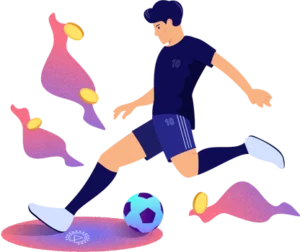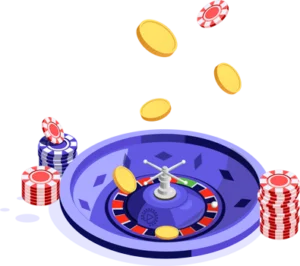What Kind of Poker Player Are You?

In the dynamic world of online gambling, poker stands out as a game that blends chance with significant skill and strategy. While some may view casino games with skepticism, poker has long been celebrated for its intellectual depth and the mental acuity it demands. Far from being merely a game of luck, poker offers a rich environment for developing critical thinking, emotional control, and strategic foresight.
Understanding the nuances of poker goes beyond just knowing the rules; it involves deciphering your opponents. Every player brings a unique style to the table, and recognizing these patterns is a cornerstone of successful poker play. By identifying the different types of poker players, you can adapt your strategy, exploit their weaknesses, and ultimately improve your own game.
The Strategic Edge: Benefits of Playing Poker
Engaging with poker regularly can sharpen a variety of personal and cognitive skills. It's not just about winning money; it's about the mental workout and the development of valuable life skills. Here are some key benefits:
- Enhanced Strategic Thinking: Poker requires constant evaluation of probabilities, potential outcomes, and opponent behavior. This fosters a highly strategic mindset, applicable in many real-world scenarios.
- Improved Decision-Making Under Pressure: With limited time and incomplete information, players must make crucial decisions that can significantly impact their game. This hones the ability to think clearly and act decisively when the stakes are high.
- Emotional Control and Discipline: Managing “tilt” – the frustration that can lead to poor decisions – is vital in poker. Players learn to control their emotions, maintain composure, and stick to a disciplined strategy, regardless of short-term results.
- Mathematical and Probabilistic Reasoning: Calculating pot odds, implied odds, and understanding hand probabilities are fundamental to poker. This naturally improves one's mathematical intuition and ability to assess risk.
- Observation and Deduction: Reading opponents, picking up on “tells” (physical or betting patterns), and deducing their potential holdings based on their actions are critical skills that enhance observational and deductive reasoning.
These benefits highlight why poker is often considered more than just a casino game; it's a mental sport that rewards intellect and discipline.
Decoding the Table: The Four Main Poker Player Types
To truly excel at poker, you must learn to categorize your opponents. Poker strategy often revolves around a 2×2 matrix that defines player types based on two key variables: how many hands they play (Loose vs. Tight) and how they play those hands (Aggressive vs. Passive). Understanding these archetypes allows you to anticipate their moves and adjust your own poker strategy accordingly.
Loose-Passive (The Calling Station)
Loose-passive players are characterized by playing a wide range of hands (loose) but rarely betting or raising (passive). They prefer to call bets, hoping to hit a strong hand, and are often reluctant to fold. They are sometimes called “calling stations” because they will call almost any bet, even with weak draws or marginal hands.
- Characteristics: Plays many hands, rarely bets or raises, calls frequently, often sees showdowns.
- How to Exploit: Bet for value with strong hands, as they are likely to call. Avoid bluffing them too often, as they don't fold easily.
Loose-Aggressive (The LAG)
Loose-aggressive players play many hands (loose) and do so with frequent bets and raises (aggressive). LAGs are often skilled players who use aggression to control pots, steal blinds, and put pressure on opponents. They can be intimidating but also prone to overplaying marginal hands.
- Characteristics: Plays many hands, bets and raises frequently, often bluffs, puts opponents under pressure.
- How to Counter: Play tight against them, wait for strong hands, and re-raise them to test their resolve. Be prepared for big swings.
Tight-Passive (The Rock)
Tight-passive players play very few hands (tight) and, when they do, they tend to call rather than bet or raise (passive). They wait for premium hands and then play them cautiously. These players are often predictable and easy to read.
- Characteristics: Plays very few hands, rarely bets or raises, folds often, only plays strong hands.
- How to Exploit: Steal their blinds frequently. When they do show aggression, assume they have a very strong hand and proceed with caution.
Tight-Aggressive (The TAG)
Tight-aggressive players are widely considered the most successful style in poker. They play a selective range of strong hands (tight) but play them aggressively with bets and raises. TAGs are patient, disciplined, and know when to apply pressure.
- Characteristics: Plays a strong, selective range of hands, bets and raises frequently with those hands, disciplined, hard to read.
- How to Counter: This is the toughest type to play against. Look for small deviations in their play, try to isolate them, and be prepared for tough decisions.
Identifying Player Types at the Table
Observing your opponents is key to categorizing them. Pay attention to:
- VPIP (Voluntarily Put Money In Pot): How often a player puts money into the pot pre-flop. High VPIP indicates a loose player, low VPIP indicates a tight player.
- PFR (Pre-Flop Raise): How often a player raises pre-flop. High PFR indicates an aggressive player, low PFR indicates a passive player.
- Bet Sizing: Consistent or erratic bet sizes can reveal patterns.
- Table Talk and Physical Tells: In live poker, these can offer valuable insights. In online casinos, observe their betting patterns and timing.
Adapting Your Strategy
Once you've identified the player types at your table, you can adjust your strategy. Against passive players, bet for value. Against aggressive players, be prepared to call or re-raise with strong hands. Against loose players, play tighter. Against tight players, steal more blinds. The ability to adapt is what separates good poker players from great ones.
Mastering poker is a continuous journey of learning and adaptation. By understanding the different player types and their tendencies, you gain a significant advantage, transforming your approach from reactive to proactive. Remember to always play responsibly and within your means, whether you're exploring casino games or honing your poker skills.
Most Recent News
Get the latest information








